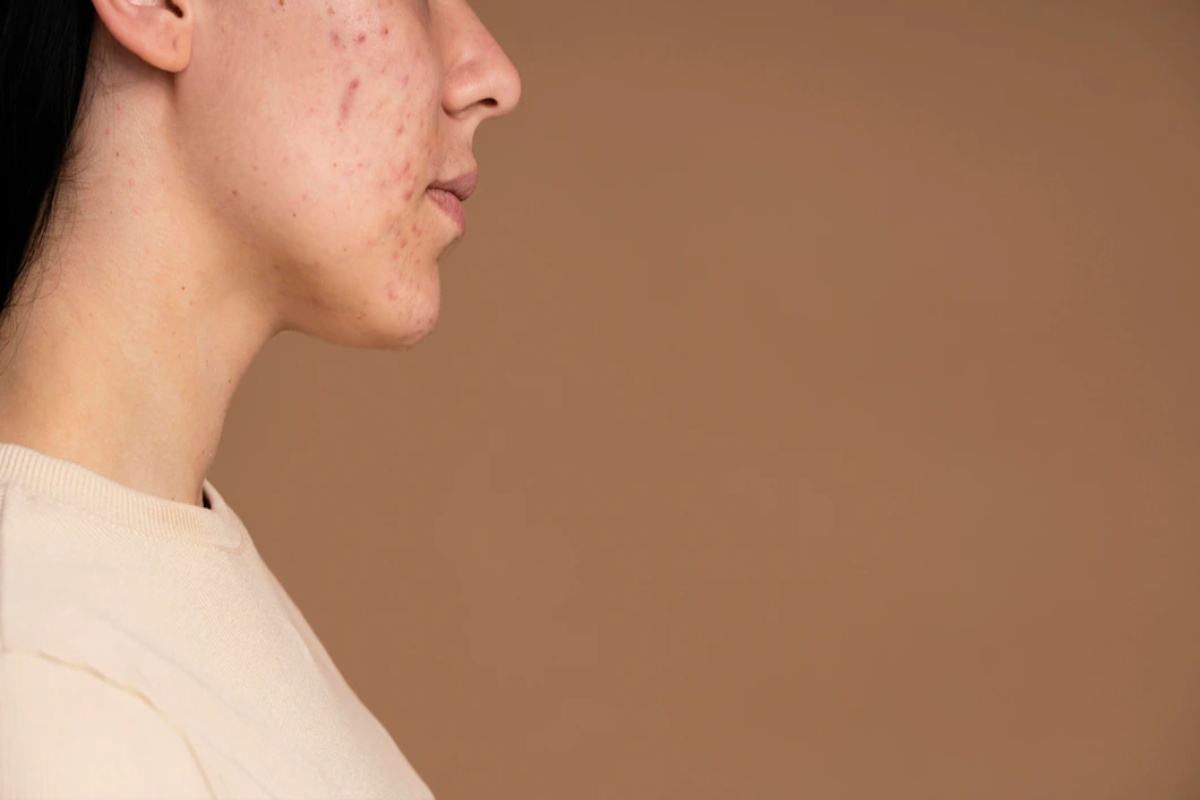Treating Hormonal Acne: Every woman has been there – the dreaded hormonal breakouts. They can be embarrassing and frustrating to deal with and can upset your whole day. But what exactly is hormonal acne, and how do we effectively treat it? In this post, we’ll take a look at the causes, symptoms, and treatments of hormonal acne in women.
Table of Contents
Hormonal Acne
Hormonal acne is also known as adult acne, and it is a type of acne that is caused by hormonal level changes in the body. These changes can cause the oil glands to produce more oil, which can then clog the pores and cause acne.
There are many different ways hormonal acne can present itself.
- Pimples
- Blackheads
- Whiteheads
- Cysts
- Papules
- Nodules
What Causes Hormonal Acne?
Acne is generally caused by clogged pores. Bacteria that are present on the surface of your skin create an acid environment that encourages your body to overreact to what otherwise would be routine changes. When your body attempts to get rid of these impurities through more than normal shedding (of dead skin cells) or through inflammation, it creates these pimples and cysts.
Hormonal acne can develop when changes in hormones increase the oil produced by your skin. This oil, in turn, interacts with the bacteria on the pores of your skin, where hair grows, and this results in acne.
Hormonal acne can be caused by:
- An increase in the production of the estrogen hormone, which can happen during puberty or during periods when women are ovulating. Hormonal acne generally mildly presents itself with a breakout near menstruation, but it also has the potential to persist all month long.
- Birth control pills and hormone replacement therapy, which can also cause levels of estrogen to fluctuate.
- Pregnancy and the changing levels of hormones that come along with it, for one. Acne tends to subside as the pregnancy progresses, and hormones begin to balance once more.
- The decline in reproductive hormones (menopause) can cause hormonal acne due to your body adjusting to changing levels.
- A lack of sleep and the presence of stress also play a hand in hormonal acne. A lack of sleep can cause stress in the body, which can then spike your cortisol levels. Elevated cortisol can then lead to inflammation and increased sebum production, which results in clogged pores and, eventually, breakouts.
- Acne may also be caused by bacteria. This is more common in people who have oily skin. Sebum helps to keep the skin healthy, but it also attracts bacteria, so for this reason, acne is more prominent in oily skin. To treat bacterial acne, you need to take good care of your skin and remove as much excess oil from your pores as possible.
What are the Symptoms of Hormonal Acne?
If you are experiencing hormonal acne, your skin may look different than normal acne. You may have more redness, inflammation, and tenderness. The skin may also be dry and itchy. Hormonal acne can be a sign that your hormones are out of balance.
Hormonal acne can show up anywhere on your body but is most common on the:
- face
- neck
- chest
- shoulders
- back
No matter where they appear, there are treatments for hormonal acne.
How to Treat Hormonal Acne?
There are a few different ways of treating hormonal acne; the best method for you depends on your unique situation. There is no one-size-fits-all cure for hormonal acne.
- Dietary changes, such as reducing sugar intake or increasing omega-3 fatty acids, can help to regulate hormone levels and improve acne symptoms.
- Staying hydrated and reducing stress are things that are often overlooked in regard to skincare. Being hydrated allows the skin to flush out toxins and unclog the pores that are clogged by dead skin cells and dirt, reducing flare-ups.
- Exfoliate regularly. Cleansing with an exfoliating agent, whether chemical or physical, helps remove dead skin cells and debris that can create an environment conducive to acne. Gently exfoliate at least twice a week to ensure your pores stay clear and clean.
- Take supplements. A cocktail of vitamins, minerals, and herbs can be very effective in reducing breakouts and helping skin cells regenerate faster to prevent hormonal acne flare-ups even before they happen. Zinc works especially well, as it is anti-inflammatory.
- Avoid wearing make-up and using harsh chemicals on your skin when you’re trying to clear up hormonal acne. These steps can aggravate your condition instead of helping it.
- Use skincare products that help balance your skin. There are many skin care products for treating hormonal acne on the market.
Wrap Up
Hormonal acne is, unfortunately, a common problem many women face in their lives, and it can be difficult to treat. If you are struggling with this, there are some tips that you can follow to help improve your skin condition. By following them, you may be able to reduce the severity of your acne and get it under control.

